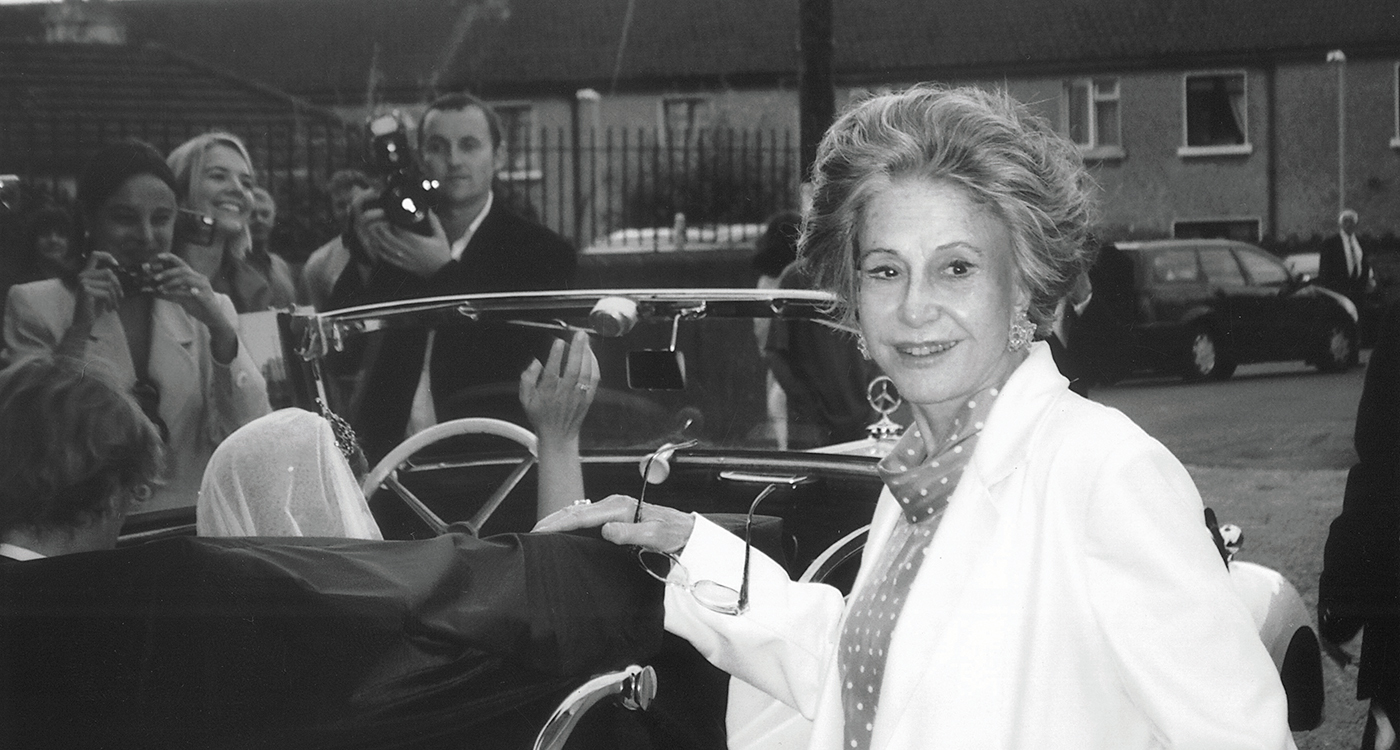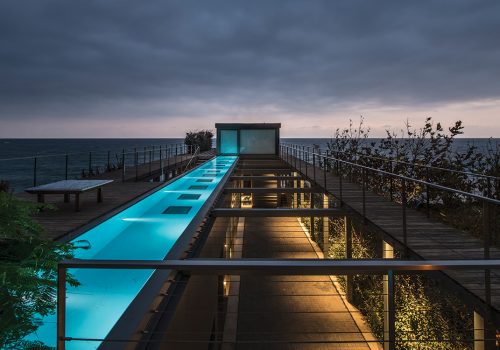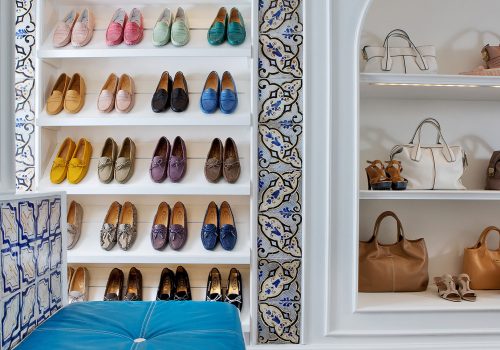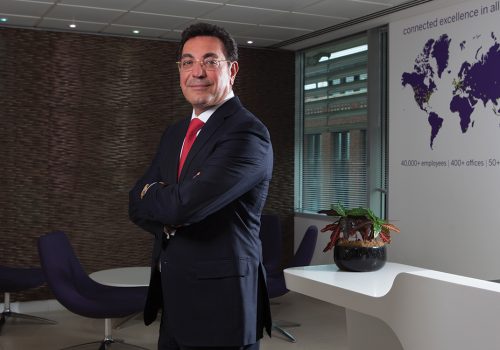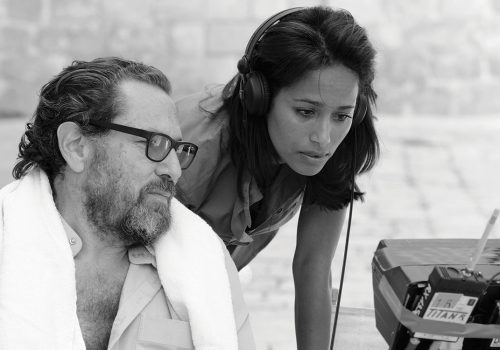An old and established family, the Sursocks have been a cornerstone of Lebanese affairs for generations. Lady Sursock Cochrane was born the only daughter to Alfred Bey Sursock and his Italian wife Donna Maria Theresa Serra di Cassano, yet she is far less interested in talking about her own heritage than that of her city. Indeed, her maternal lineage is pretty blue blooded – she is the granddaughter of the seventh Duke of Cassano – but this is a fact she mentions only in passing as a side note contrasting the public fervour in Naples at the reopening of her family’s Palazzo Cassano to the Lebanese apathy toward their own cultural heritage.
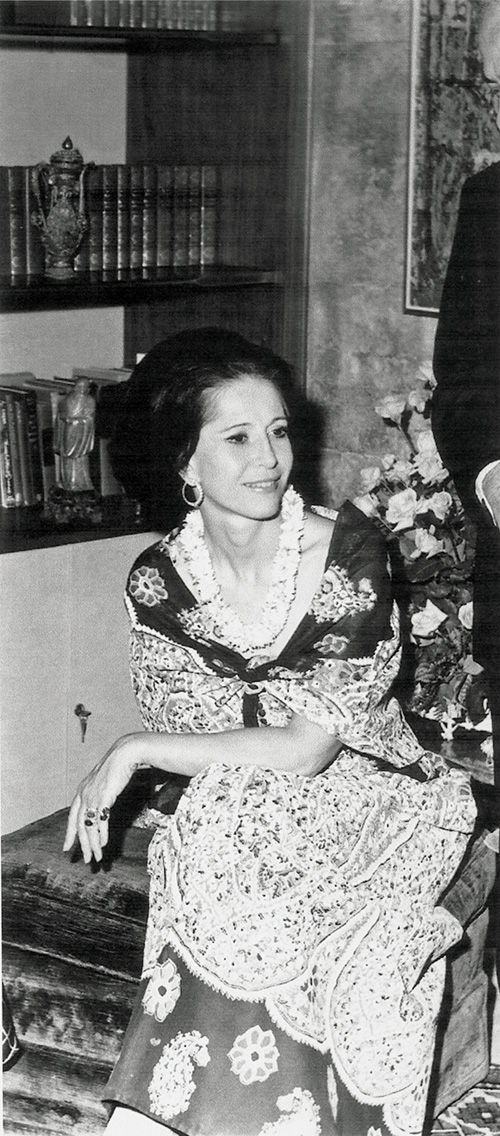 Lady Sursock Cochrane married Irish nobleman Sir Desmond Cochrane in 1946 and her anecdotes paint a wistful picture mixing quaint mannerisms and prominent high society gatherings. The attendance of balls and other such gatherings may have long since given way to the casual social interactions that take place over cocktails in the present day Gemmayzeh district, yet it is not the deterioration of noble customs she decries, but the physical decline of Beirut that so pains her.
Lady Sursock Cochrane married Irish nobleman Sir Desmond Cochrane in 1946 and her anecdotes paint a wistful picture mixing quaint mannerisms and prominent high society gatherings. The attendance of balls and other such gatherings may have long since given way to the casual social interactions that take place over cocktails in the present day Gemmayzeh district, yet it is not the deterioration of noble customs she decries, but the physical decline of Beirut that so pains her.
Despite her international background, Lady Surscock Cochrane has always lived in her childhood residence. The Palais Sursock – as it is referred to in the country’s trilingual parlance – is one of the country’s best-known heirlooms, and the fact that it is still inhabited by a genuinely titled noblewoman merely adds to its grandeur.
The palatial residence is said to have been one of Beirut’s most dignified houses when it was first built back in the 1800s but today it is one of the only such relics to have survived intact – a fact of which she is acutely aware.
Disillusioned that the “garden city” of her youth gave way to high-rise “horrors”, Lady Sursock Cochrane founded the Association for the Protection of the Natural Sites and Ancient Buildings – or APSAD; Association pour la protection des sites et anciennes demeures – in 1960. Now even though she’s a great-grandmother, her passion towards the perceived aesthetic and cultural decline of Lebanon has hardly waned. A discussion with Lady Sursock Cochrane that touches on the matter is an animated affair, delivered in a cut glass English accent and peppered with a sprightly laugh.
YOU HAVE BEEN A CULTURAL FIGURE FOR YEARS, HOW DID THAT COME ABOUT AND HOW HAS THAT ROLE EVOLVED?
Well, I belong to a cultural family. That is the first thing and secondly I got involved in Beirut in the 1950s. I used to live upstairs on the top floor of the palace and one of the joys of living there was the view on to the port and the sea. The view was breathtaking, so very beautiful. And then I one day thought to myself, “I’m not breath-taken, what has happened?” The view was being changed by the eradication of green space, buildings were rising rapidly and the result was a loss of harmony. It was at that moment that I thought we must stop this so I founded APSAD [Association pour la Protection des Sites et Anciennes Demeures au Liban, which translates as Association for the Protection of Sites and Ancient Dwellings in Lebanon]. Unfortunately, we didn’t stop anything. As you see Beirut has become an enormous slum.
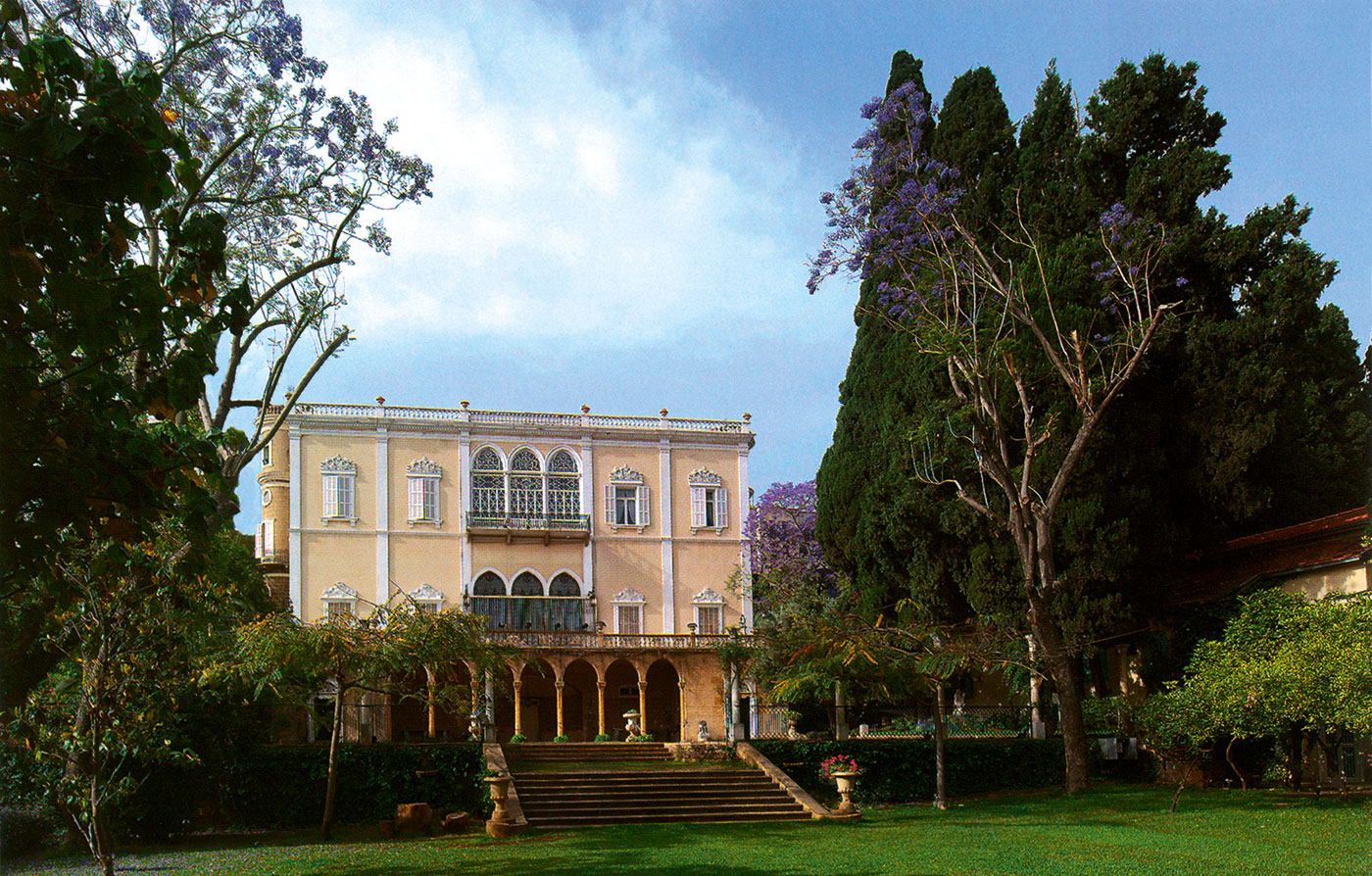
The north façade of the Sursock Palace in Beirut’s Ashrafieh neighbourhood
THAT WAS MY NEXT QUESTION: COULD YOU TELL US ABOUT APSAD?
I founded APSAD with the hope that it might stop the rot you see. We certainly made the public aware of what was happening, but we haven’t been able to succeed in our mission because of, well, democracy. For instance we had a minister who embraced our cause and he listed a whole lot of houses but later when he left they were subsequently unlisted. It seems that no one has the power to do anything here.
If you go to Syria, every year the environment gets better from every point of view. Every time they discover something, it is immediately dug up, presented and opened to the public. Here, nothing like that happens. Nothing. Nothing at all.
Every day in Lebanon we discover something, every day those findings are thrown away because the all-powerful entrepreneurs and developers are the ones that count and they don’t think of the future or anything like that. In Syria you go from one beautiful place to another. Here you go from one hideous place to another.
Let me give you another example. Next door to this here palace there was a barren plot of land that served as a parking lot. I suspected the site might be important so I rang up the Department of Antiquities and I said, “Listen, perhaps you can find something interesting in the land next door.” So they came and dug around. What did they find? A Roman bath, a complete Roman bath. So I said, “I suppose you’ll open that to the public?” But they said “Oh no we can’t do that, not with the price of land here.” So it was just thrown away.
You see, when they say they’ll keep it, they don’t keep it. I mean, where are they going to keep it? You would have to have a whole town to stack all the beautiful treasures. Instead, they’re all thrown away. All of our past has been thrown away, our entire civilisation has been thrown away. Why? To allow these wretched, uncivilised, people to ruin this town. Beirut was once one of the most beautiful cities, with its own architecture – very light, very elegant. It was a garden city – full of greenery, lots of gardens and lovely delicate houses…
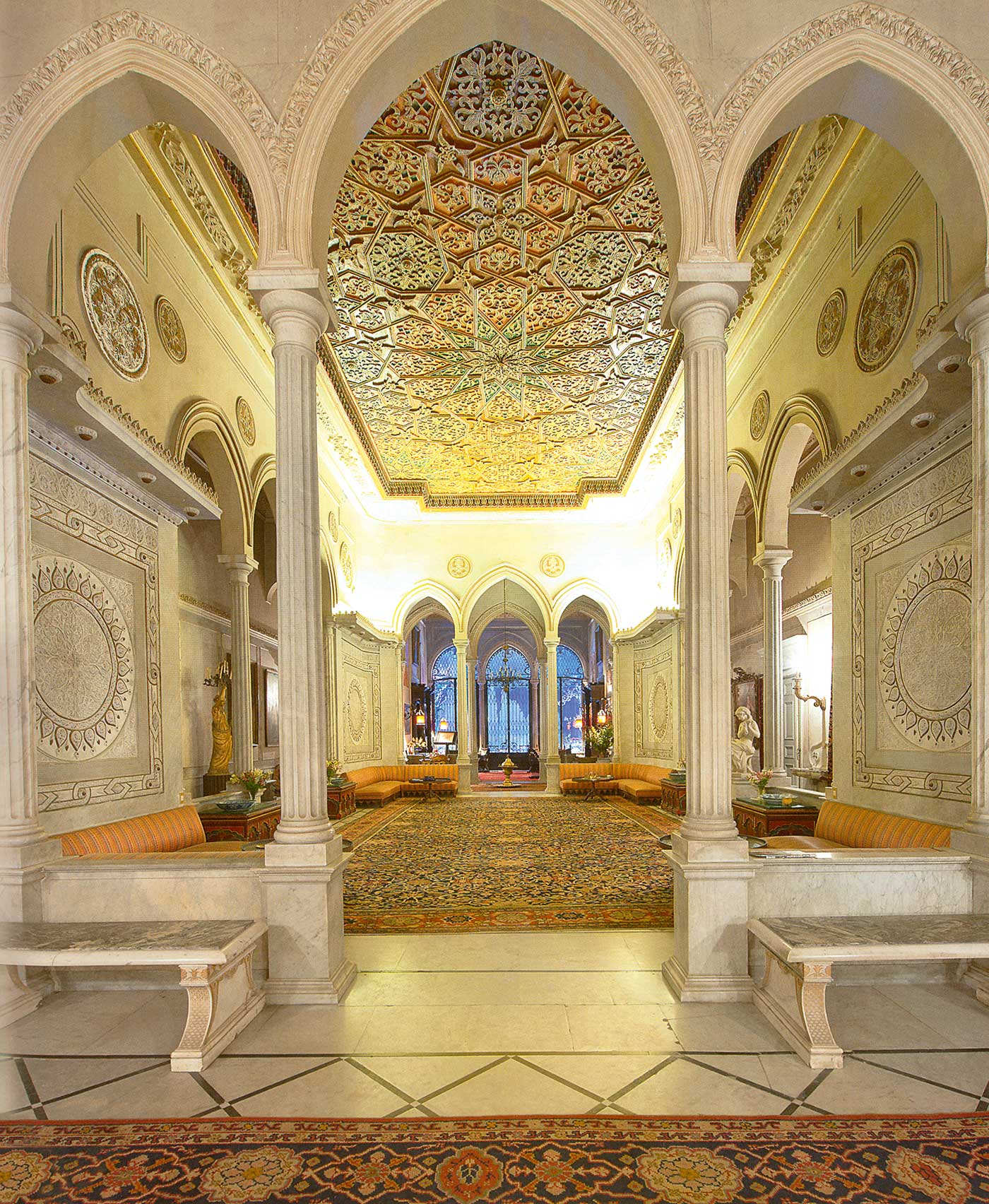
The main hall on the ground floor of Sursock Palace features ornate marble fixtures, stunning Persian carpets and detailed stucco in the ceiling.
IT’S TRUE AND IT’S VERY REGRETTABLE. WOULD YOU MIND TELLING ME A LITTLE BIT ABOUT YOUR FAMILY?
Which ones? The Sursocks or the Cochranes?
BOTH AND ALSO HOW YOU CAME TO RESIDE IN BEIRUT?
Well I was born in Naples, and I came to this house when I was just one month old.
COULD YOU TELL US ABOUT YOUR FAMILY HISTORY?
Although people have tried to explain what the name Sursock is and tried to place it, they can’t because it’s not an Arabic name. It’s a Greek name, an old Greek name, and it means ‘Lord Isaac’. It goes back to Byzantine times. As a matter of fact, quite a lot of Lebanese Orthodox Christians go back that far.
YOUR TITLE IS LADY COCHRANE, HOW IS IT THAT YOU HAVE SUCH A TITLE?
Well I belong to somebody who had a title, that’s all. The Cochranes are a very old family… You know when I used to live in London, I was at a party or a ball or something like that and King Edward I think, the one who abdicated, well I used to meet him every now and then and he always used to say to me: “Remember Cochrane is one of the oldest families in Britain”.
IN THE WAY SOME AMBASSADORS MAY FEEL SLIGHTED IF THEY’RE NOT ADDRESSED AS ‘YOUR EXCELLENCY’, DOES IT BOTHER YOU IF PEOPLE DON’T USE YOUR TITLE?
No it doesn’t bother me at all. They use it in society, but I never sign that way. I just sign Yvonne Sursock Cochrane. I’m astonished at such ambassadors for if they were well bred they wouldn’t be annoyed. They should only be annoyed if it was a slight to their country, but not otherwise.
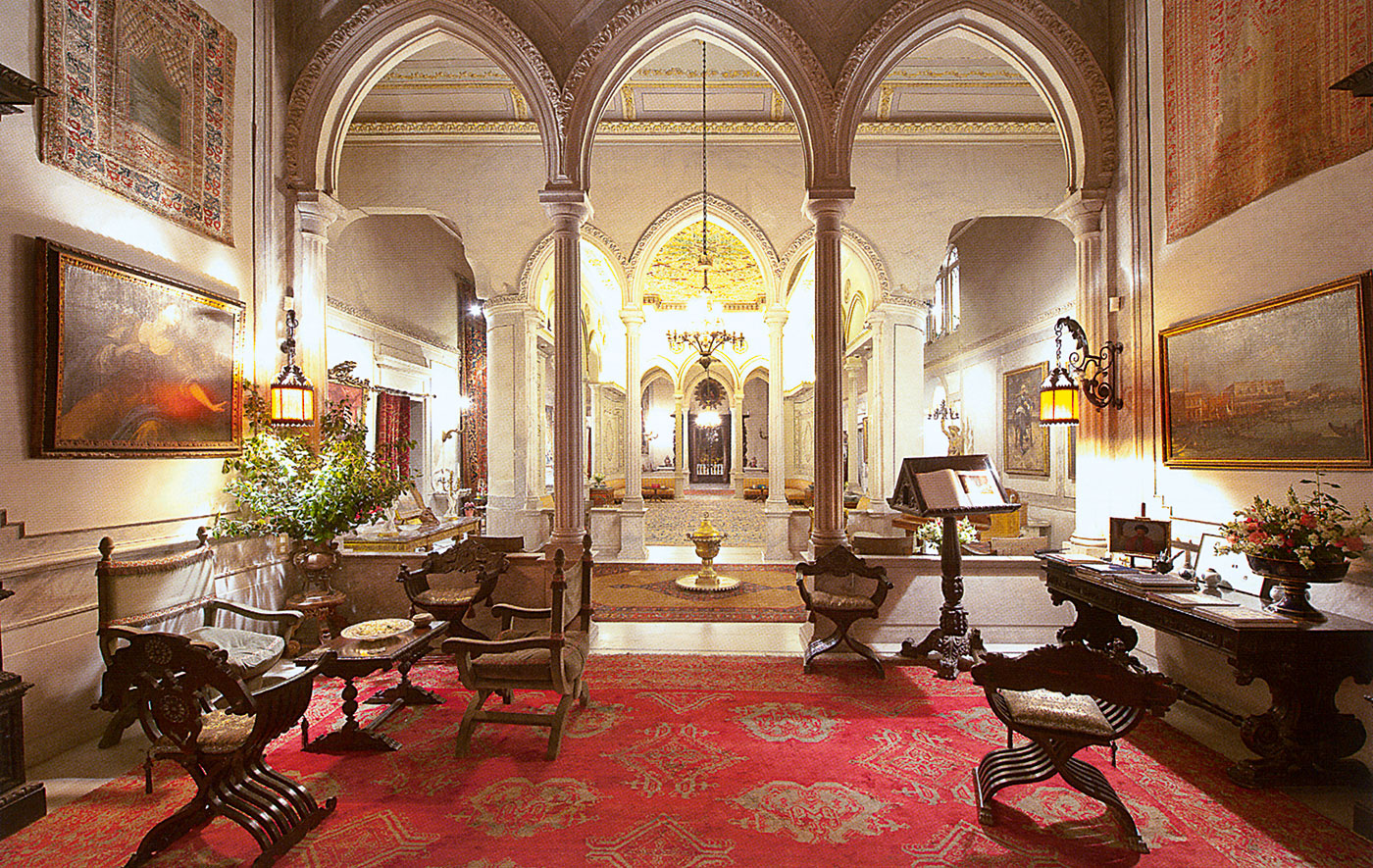
Though Lady Cochrane allowed her palace to be used for weddings, access was limited to the grounds only and the inside of the palace was for the family only
YOUR MOTHER IS ITALIAN, DID YOU EVER THINK OF SETTLING IN ITALY, OR DID YOU ALWAYS WANT TO SETTLE IN LEBANON?
No I didn’t want to settle in Italy. I’m very fond of Lebanon, and then I have the duty of this house. If I didn’t, perhaps I would not have settled here.
SPEAKING OF WHICH, MOST LEBANESE REFER TO THE AREA SURROUNDING YOUR HOUSE AS SURSOCK, IS THAT STRANGE TO YOU?
They shouldn’t. It annoys me very much, but I would have to sue a lot of people in order to correct it.
THERE AREN’T MANY OLD BEIRUT FAMILIES WHO HAVE MANAGED TO MAINTAIN THEMSELVES AS A WELL KNOWN, CULTURED AND DYNASTIC FAMILY. HOW IS IT THAT YOUR FAMILY HAS MANAGED TO MAINTAIN ITS STATUS?
We have maintained it because we have upheld the same standards, for the most part. But it hasn’t been a very stable society, I mean throughout history Lebanese have left their country and returned. Perhaps that’s why there is no continuity?
They leave because they are afraid, whether from earthquakes, wars, or other reasons. I think it is very distressing to see so many of the young continue to leave, even today. All the young now want to go to university. It happens worldwide and something has to be done about it because they don’t get any jobs. They all go to university, but we’ve got too many doctors, too many lawyers. It is not a problem that is unique to Lebanon but something has to be done about it. Arts and crafts have been abandoned. One forgets that almost all these different lawyers will never be part of history. On the other hand, great cooks are in history books as are great cabinet-makers and great carpenters, they all helped shape history in becoming great artists. Here they don’t do that you see. Not only here, everywhere, in Italy even, the idea now is that you have to be at university and this is nonsense.
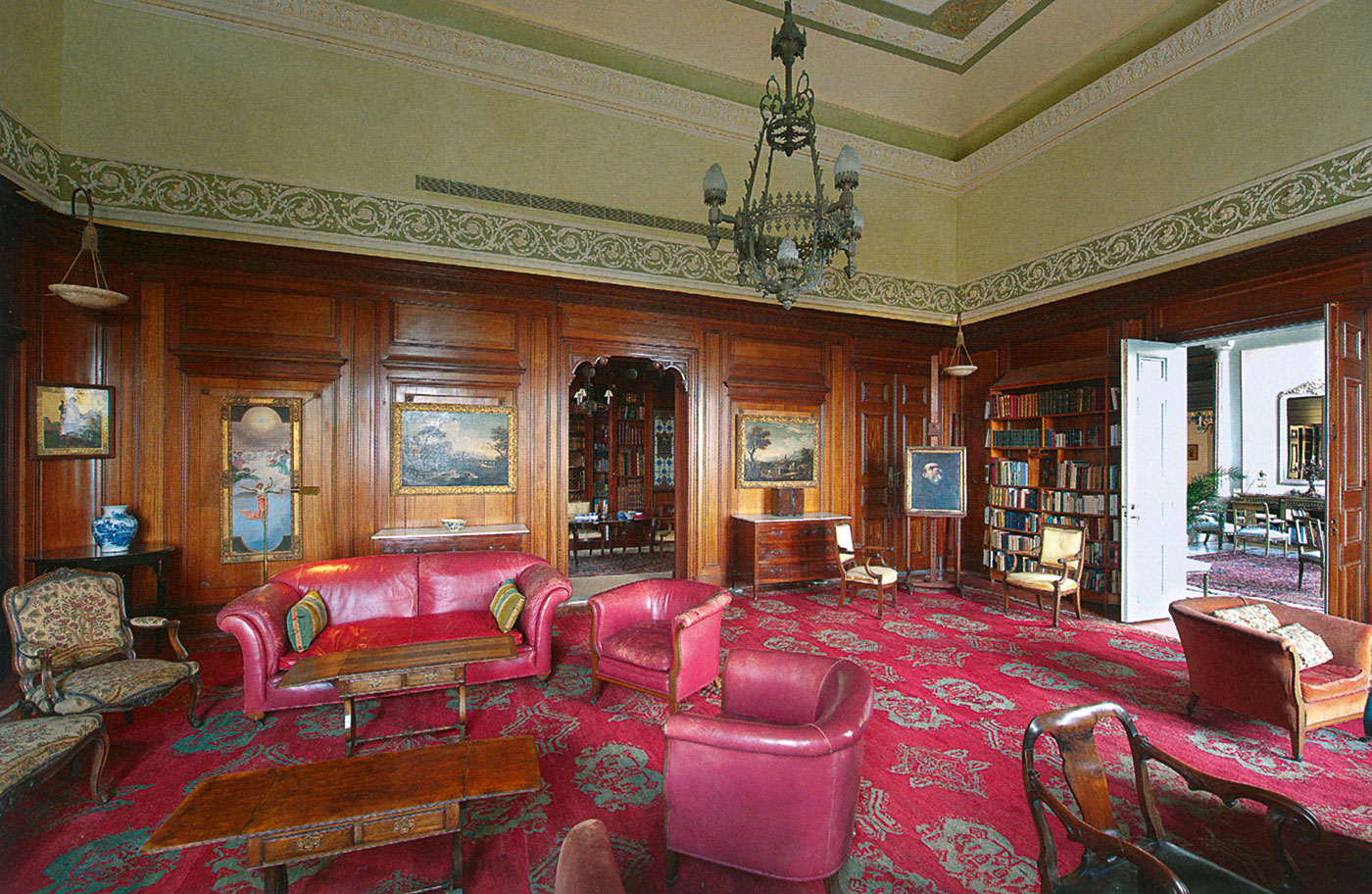
One of the many private reading areas flanking Lady Cochrane’s library
HOW DO YOU FEEL ABOUT DOWNTOWN BEIRUT AND THE MANNER IN WHICH IT HAS BEEN RECONSTRUCTED AND RESTORED BY SOLIDERE?
Downtown Beirut was a terrible tragedy. Beautiful houses were being pulled down all the time and APSAD campaigned virulently against this. The Germans for some reason took up the cause too and they produced a film that lasted one hour about the destruction of Beirut by Solidere – Mr. Rafic Al Hariri, in other words. That of course upset Hariri enormously.
But he was a very intelligent man and he realised he was probably going the wrong way. He then reversed his policy and instead of continuing the destruction of houses, he restored them and he restored them quite well.
And before he died he said, “What a pity I have destroyed so many houses, because the only place where the tourists go where even the Lebanese spend the evening and so on, is in Downtown where I have not destroyed the houses and instead restored them.” He had a book published called ‘Beirut Reborn’ and he sent me a copy and said “I hope you are satisfied now”. But aside from Downtown there is a lack of a municipality, a lack of everything. We’re in a terrible, terrible mess.
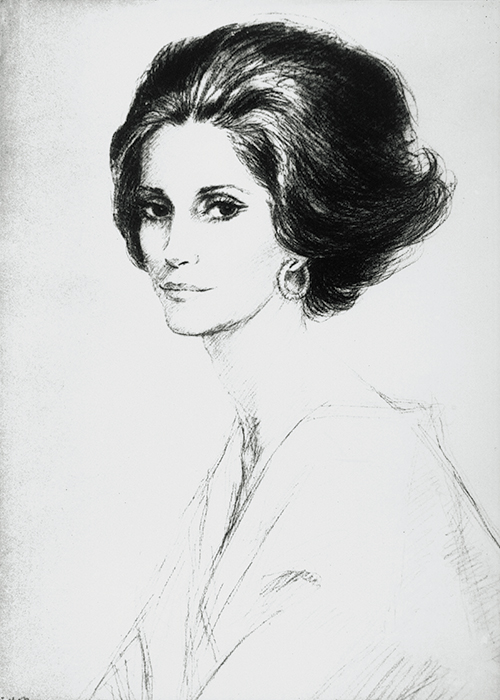
A portrait of a more youthful Lady Cochrane
HAVE YOU PERSONALLY SPOKEN TO CONTRACTORS AND DEVELOPERS?
There is no use in talking to uncivilised contractors; they wouldn’t know what you’re talking about. It’s a great catastrophe what has happened in Lebanon. Everything was so beautiful. They’ve even wrecked the mountains. Quarries have taken off the tops of several mountains; can you imagine a thing like that? Now I hear there’s a quarry behind the Roman ruins of Akkar. Two very well known families that I’d prefer not to name are making a lot of money from this, but they are wrecking their own country… Lebanon is like an orange, which is being peeled and then thrown away.
IS THAT THE END SCENARIO OR IS THERE A WAY TO CHANGE THIS?
I think it’s a bit late to change that. You’d need a whole new form of governance. But even then it’s late as half of Beirut has been ruined. It would be very difficult now. The rot has gone so very deep.
PHOTOGRAPHERS: Ferrante Ferranti & Matthieu Ferrier


